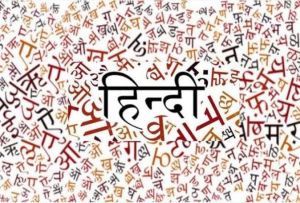Difference between revisions of "Language/Hindi/Grammar/Past-Tense"
| Line 35: | Line 35: | ||
In Hindi, you would replace these two elements with one of these terms: | In Hindi, you would replace these two elements with one of these terms: | ||
{| class="wikitable" | {| class="wikitable" | ||
|अमर सेब खा रहा था। | |अमर सेब खा रहा था। | ||
''amar Seb khaa rahaa THaa.'' | ''amar Seb khaa rahaa THaa.'' | ||
| Line 49: | Line 47: | ||
|“The kids were sleeping | |“The kids were sleeping | ||
|} | |} | ||
==Past Perfect Tense== | |||
The past perfect tense is used to express actions that were performed and completed in the past. | The past perfect tense is used to express actions that were performed and completed in the past. | ||
| Line 63: | Line 61: | ||
* चुके थे (''cuke'' ''THe'') | * चुके थे (''cuke'' ''THe'') | ||
For example: | For example: | ||
==Past Perfect Tense== | ==Past Perfect Tense== | ||
Revision as of 22:55, 8 August 2022
Simple Past Tense
| अमर ने सेब खाया।
amar Ne Seb khaayaa.Or अमर सेब खाता था। amar Seb khaaTaa THaa. |
“Amar ate an apple.” |
| पारुल स्कूल गयी।
paaruL SkuuL gayii.Or पारुल स्कूल जाती थी। paaruL SkuuL jaaTii THii. |
“Parul went to school.” |
| बच्चे सोये।
bacce Soye.Or बच्चे सोते थे। bacce SoTe THe. |
“The kids slept.” |
Past Continuous
We use the past continuous tense to describe a continuous action that was taking place at a specific time in the past.
In English, this tense is formed by using the auxiliary “was” or “were,” followed by the root form of the main verb + “-ing.” For example:
- [was / were] + eat + ing = was/were eating
In Hindi, you would replace these two elements with one of these terms:
| अमर सेब खा रहा था।
amar Seb khaa rahaa THaa. |
“Amar was eating an apple.” |
| पारुल स्कूल जा रही थी।
paaruL SkuuL jaa rahii THii. |
“Parul was going to school.” |
| बच्चे सो रहे थे।
bacce So rahe THe. |
“The kids were sleeping |
Past Perfect Tense
The past perfect tense is used to express actions that were performed and completed in the past.
In English, you would form this tense by using the auxiliary “had,” followed by the third form of the main verb:
- [had] + eaten = had eaten
In Hindi, the auxiliary “had” is replaced by one of these terms:
- चुका था (cukaa THaa)
- चुकी थी (cukii THii)
- चुके थे (cuke THe)
For example:
Past Perfect Tense
| अमर सेब खा चुका था।
amar Seb khaa cukaa THaa. |
“Amar had eaten an apple.” |
| पारुल स्कूल जा चुकी थी।
paaruL SkuuL jaa cukii THii. |
“Parul had gone to school.” |
| बच्चे सो चुके थे।
bacce So cuke THe. |
“The kids had slept.” |
